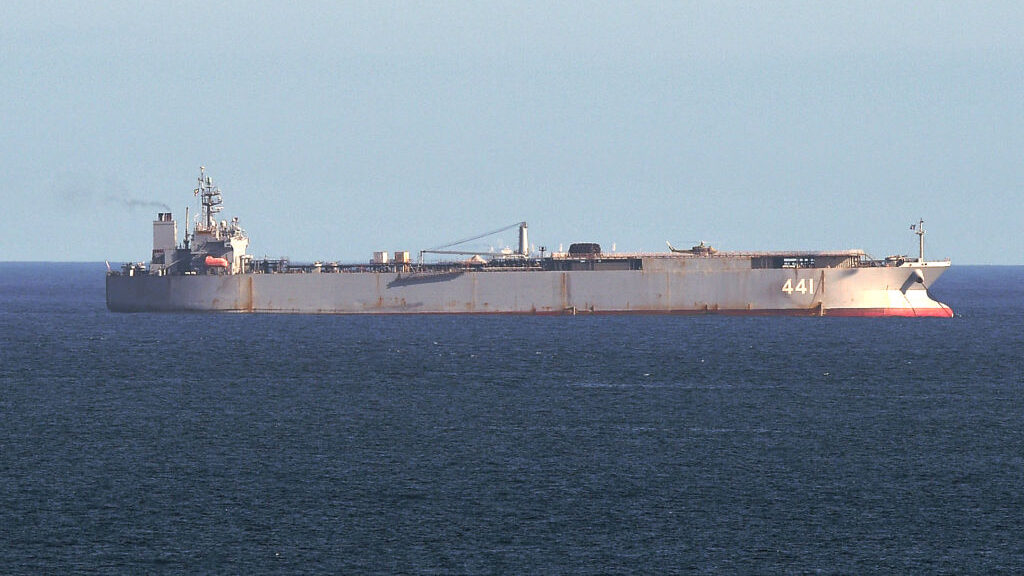Brazil Allows Iranian Warships To Dock in Rio Despite US Opposition
Brazilian President Lula has shown interest in strengthening ties with Iran, while positioning his country as an "international arbiter able to negotiate a resolution to ongoing conflicts," expert says
Brazil’s government allowed two Iranian warships to dock in a port in the coastal city of Rio de Janeiro on Sunday, despite Washington’s pressure to restrict the arrival of the ships to Brazilian ports. Meanwhile, Brazilian President Luiz Inacio Lula da Silva, who came to power in January, intends to position Brasilia as a neutral international power and has shown in the past interest in strengthening ties with the Islamic Republic.
The move will serve to probe the American response to such a maneuver, according to Torbjorn Soltvedt, the principal MENA analyst at risk intelligence firm Verisk Maplecroft.
“The visit will allow both Iran and Brazil to test the waters and gauge how the Biden Administration will react to a move Brasilia knows will go down badly in Washington,” he told The Media Line.
Dr. Andrei Serbin Pont, an international analyst and the executive director of CRIES, a think tank based in Buenos Aires, added that Iran has been proactively engaging with Latin American and Caribbean countries in recent years in a bid to highlight its capabilities for projecting influence far beyond its borders.
Historically, Serbin Pont told The Media Line, this engagement has primarily focused on more radicalized anti-US governments in the region such as Venezuela, Cuba and Nicaragua. However, he added that today, Tehran also is focusing on important US partners such as Brazil and Panama.
Serbin Pont says that, officially, the US stated that its problem with the warships arriving in Rio was that these were linked to Iran’s illegal trade activities in order to evade international sanctions, in addition to suspected terrorist activities.
The visit will allow both Iran and Brazil to test the waters and gauge how the Biden administration will react to a move Brasilia knows will go down badly in Washington
Soltvedt adds that the reason for the two vessels’ presence in the region is still unclear. But he believes that, given their history, their destination might be Venezuela, which also is under US sanctions.
“Swap trades between Iran and Venezuela in fuel products and crude oil have continued into 2023, with both states seeking to find a way around US sanctions,” he noted.
Konrad Petraitis Alfaro, lead Americas analyst at Sibylline Ltd., told The Media Line that the vessels departed from their home ports in the south of Iran in early autumn and are thought to be part of a mission that will cross the Panama Canal.
Washington has signaled a tougher stance against Iranian efforts to evade sanctions and against countries and commercial entities which facilitate this, Soltvedt points out.
“With no clear path to a nuclear agreement with Iran, the Biden administration is seeking to crack down on loopholes in the sanctions framework,” he added.
That is why Soltvedt believes that, given the past involvement of these ships in sanctions evasion, “the Biden administration will take a dim view of the decision to allow them to dock in Brazil,” he continued.
Even if Iran gains greater influence in Latin America, Soltvedt believes that the Biden Administration will make efforts to enforce sanctions more vigorously to counter this.
At the same time, Serbin Pont believes that “the main interest of the US is to contain any Iranian efforts to expand its presence in Latin America and the Caribbean.”
Petraitis Alfaro adds that the US has yet to completely change the Trump-era “maximum pressure” campaign against Iran, aimed at securing the renegotiation of the nuclear agreement. “This is part of that wider strategy, which in essence denies Iranian military assets any safe haven,” he suggested.
US pressure was successful while Lula’s February visit to the US was pending, as the Lula administration did have interest in a successful meeting with such an important partner, Serbin Pont said, referring to Lula’s refusal to allow Iranian vessels to dock in Rio’s port in late January prior to his visit to the US.
Yet once the visit was completed, he added, “the Brazilian government had more flexibility to continue working on what it perceives as being a more ample and pragmatic foreign policy agenda that builds on Lula´s past governments.”
Diplomatic ties with Iran, says Serbin Pont, have been an important part of Lula´s attempts to bolster Brazil’s international stance in the past. He noted that Lula visited Iran to meet with former Iranian President Mahmoud Ahmadinejad in 2010 in a bid to support a US-Iran nuclear deal.
In this context, “Lula has repeatedly suggested he will restart his ‘active and affirmative’ strategic diplomacy, aimed at placing Brazil as an international arbiter able to negotiate a resolution to ongoing conflicts,” Petraitis Alfaro added.
International pressure toward Tehran is growing, both from the US and increasingly from Europe, says Soltvedt. “Iran’s support for Russia’s invasion of Ukraine has shifted Europe’s position in particular,” he added.
In addition to this, he says that it is important to consider the Iranian government’s ongoing crackdown on domestic protests.
“Even if cooperation with US sanctions weakens in Latin America, Iran will almost certainly find itself under greater sanctions pressure in 2023 than in 2022,” he continued.
Allowing warships to dock in a safe port is largely a symbolic gesture and is unlikely to have any tangible effect on the sanctions regime, according to Petraitis Alfaro.
But he adds hypothetically that “if Lula were to seek further ties with Iran, this may allow Tehran to bypass some financial sanctions and measures that prevent it from sourcing equipment from US/EU companies. However, this is hypothetical at the moment.”


